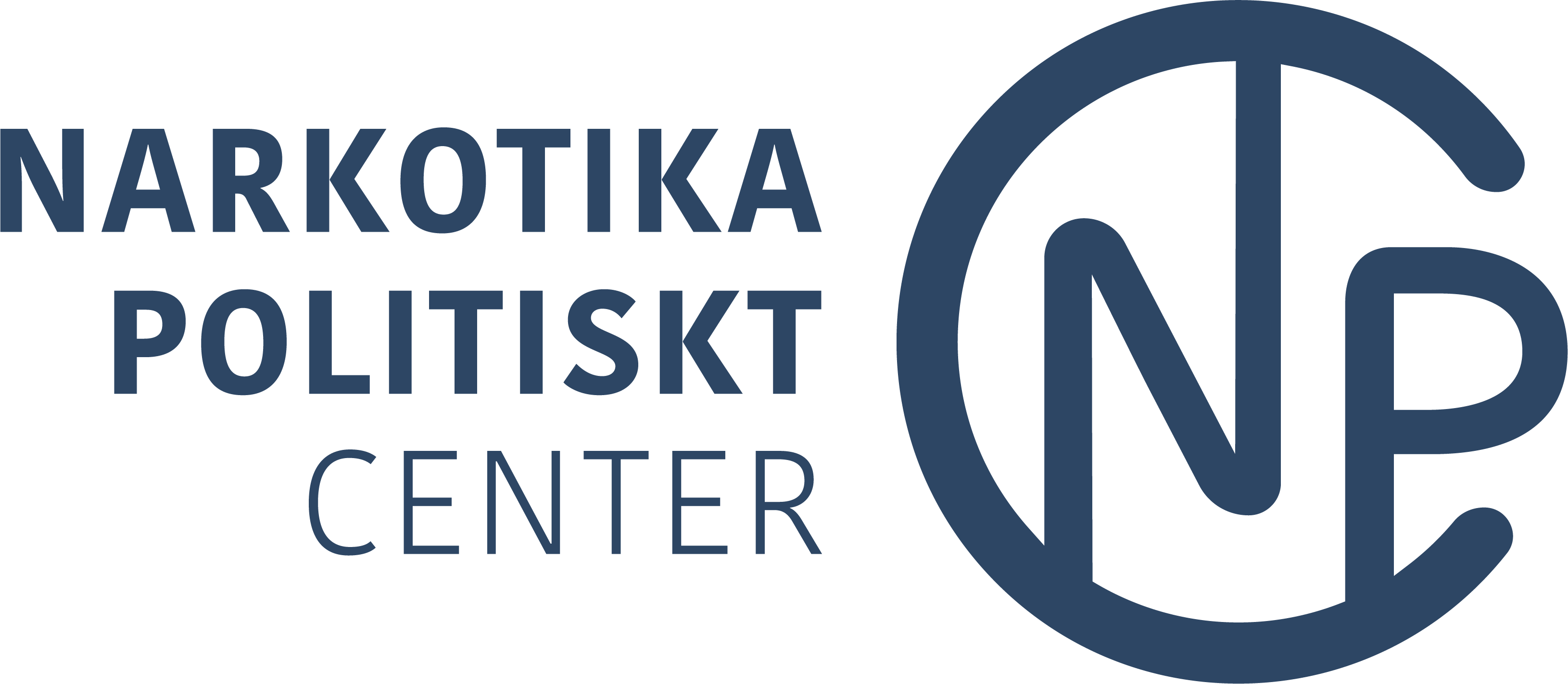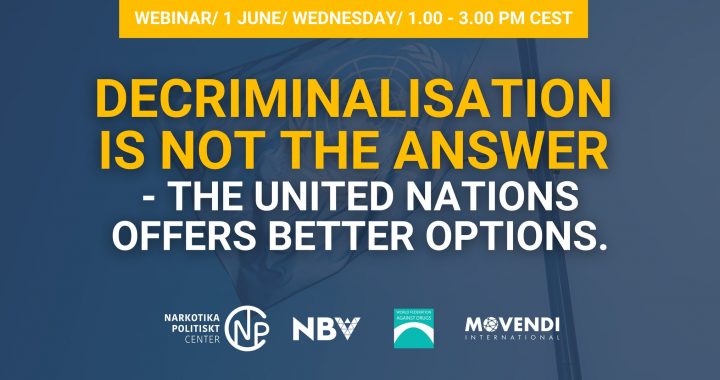Wednesday- 1 June – 1.00 – 3.00 PM CEST
Webinar: Decriminalisation is not the answer – The United Nations offers better options.
Positions taken by the United Nations are often used as arguments in national drug policy debates. Unfortunately, quotes from UN documents are often taken out of their context. This webinar will focus on what the UN has said and not said about national drug policies. The first part will be a presentation on decriminalization of drugs and will also analyze the UN positions on drug decriminalization.
The second part will be a session of short reflections from different organizations and also gives an introduction to the essence of the UNGASS Outsome Document from 2016, the most recent, representative and comprehensive policy document from the UN system.
There are extensive discussions regarding The United Nations recommendations on drug decriminalization. The Swedish Drug Policy Center gave the assignment to Dag Endal, former coordinator of Drug Policy Futures and Project Coordinator for FORUT Norway, to clarify and summarize what the different parts of The United Nations system actually recommend and say when it comes to drug decriminalization. The summary can be found
hereThe UNGASS Outcome Document presents a long list of evidence-based and effective interventions to prevent and treat drug problems. Many of these proposals from the UN are under-communicated or simply ignored in national debates. Our panelists will highlight UN positions that they find most important and relevant for national follow-up.
Moderators:
Kristina Sperkova, President at Movendi International. (Sweden)
Regina Mattsson, Secretary General at WFAD. (Sweden)
Presentations from:
Dag Endal. Former coordinator of Drug Policy Futures and Project Coordinator for FORUT Norway.
Pierre Andersson. Policy Advisor Alcohol and Development, IOGT-NTO Movement Sweden.
Eze Eluchie, President of the African Center for Health Law and Development (Nigeria)
Diana Joseph, Director of Fourth Wave Foundation (India)
Shane Varcoe, Executive Director for the Dalgarno Institute (Australia)
Amy Ronshausen, WFAD-president. Executive Director for Drug Free America Foundation. (USA)
Organizers:
The Swedish Drug Policy Center (Narkotikapolitiskt Center)
Movendi International
WFAD
NBV


